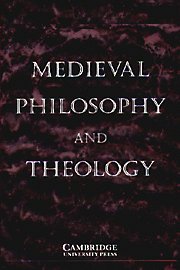No CrossRef data available.
Article contents
Analogy, Semantics, and Hermeneutics: The “Concept versus Judgment” Critique of Cajetan's De Nominum Analogia
Published online by Cambridge University Press: 12 May 2005
Extract
Cajetan's treatment of analogy in De Nominum Analogia is well known as the most influential and sophisticated theory of a central issue in Thomistic philosophy. The late twentieth century saw that theory subject to a family of criticisms. If the critics are correct, Cajetan's analogy theory is also significant historically for exposing weaknesses latent in medieval semantic assumptions. According to the critics, the Aristotelian assumptions that words signify by means of discrete “concepts,” and that the meaning of propositions depends on the significations of its component terms, cannot do justice to the complexity, variety, and flexibility of actual human discourse; in De Nominum Analogia they see the elegant structure of classical semantics collapsing under the pressure of analogical language. In this article, I examine these criticisms of Cajetan's analogy theory, and argue that, in light of both Cajetan's semantic principles and his hermeneutic practice, they fall short. The conclusion not only implies a defense of Cajetan's project, but clarifies the general philosophical alternatives available within the traditional Aristotelian semantic framework.
- Type
- Research Article
- Information
- Copyright
- © 2005 Cambridge University Press




